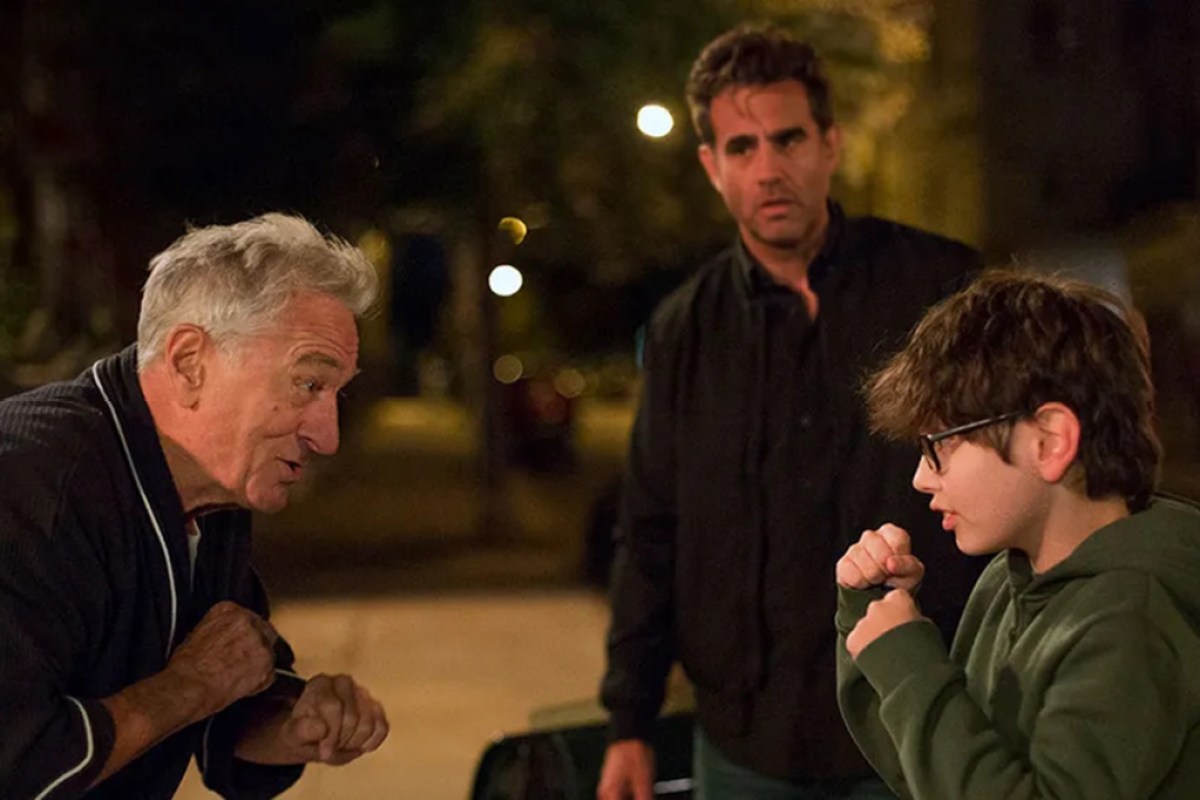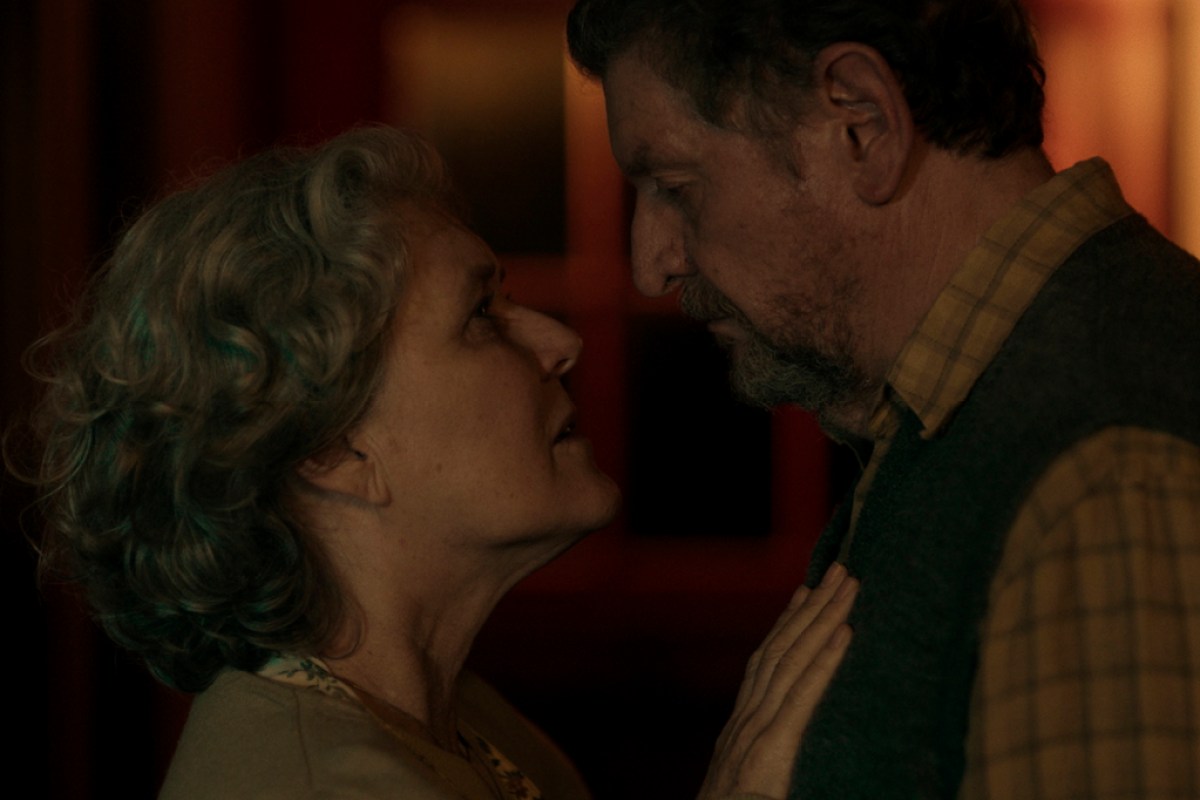Breakfast of Film Championing
First Full Day of SBIFF Opens with “Breakfast Club” Screenings, Ends with Maestro Bradley Cooper
First Full Day of SBIFF Opens with “Breakfast Club” Screenings, Ends with Maestro Bradley Cooper

Die-hard film SBIFF-goers know that the race goes to the early bird — or some such mixed metaphor. In order to get maximum traction and overview on the festival’s 200-plus film program grid, one really must join the so-called “Breakfast Club,” the 8 a.m.-ish slots, which also often happen to showcase some of the stronger films on the roster.
But showing up in advance of an 8 a.m. screening requires some planning for those not accustomed to the early morning drill. Thus, I showed up for yesterday’s screening of the Ezra on the run, with no breakfast.
Thankfully, the gods of surprise sustenance and media munificence save the day, and I was handed a hefty box of popcorn by none other than KEYT’s reporter on the scene. She and a camera person were set up just in front of me before the screening started, as a reporter on the scene of the film festival in its earliest possible moment (not including Wednesday’s opening night gala). I contributed a critical bit of intel — the “Breakfast Club” moniker — and was rewarded with a newscast prop turned busman’s breakfast, ready to greet the film-packed day.
And what better way to do that then with a one-two punch of a moving Hollywood dramedy followed by a slow, poetic and slightly political Brazilian arthouse film?
Director Tony Goldwyn’s Ezra, surely destined for a general release soon, is a moving film anchored by an important thematic: living with a special needs child on the spectrum (Ezra, stunningly played by young and infinitely chameleonic William Fitzgerald). The struggles of keeping Ezra on the right path and out of harm’s — and the law’s — way become a challenge for his stubbly, volatile comedian father (Bobby Cannavale, in one of his strongest performances to date) and voice-of-reason mother (Rose Byrne). Robert De Niro, whose roles can switch-hit between kindly family man and tough guy, here gets to fuse the two and keeps dazzling us in his role as the grandfather, especially in an unusually (for De Niro) vulnerable catalyst scene in a diner.

The road movie structure and other Hollywood tropes keep the comic-drama from transcending into a more artistic statement, but Ezra can’t help but tug on heartstrings and tear ducts, and deliver surprise jabs to the funny bone.
For something completely different…. Brazilian director Christine Oliveira’s intriguing poem of a film Until the Music Is Over is a slow, hypnotic film ostensibly about the dissolution of a long-suffered marriage, which takes a sharp downward turn when the wife discovers the morally dubious business dealings of her traveling salesman husband. There is a small turtle with large meanings attached in the tale. But as the director explained in a Q&A at the Fiesta multiplex yesterday, the film tells its humble story within a much broader metaphorical framework, dealing with “ethics in relationships.” Specifically, she refers to the recently ended but nasty far-right reign of Bolsonaro, in which “false moralities started rising in politics, using religion to get votes.” Sounds eerily familiar, as relates to these United States and its pending political gaming. (For another film which refers to the ugly residue of Bolsonaro’s tenure, check out the rainforest documentary We Are the Guardians).

The fine and deftly etched Danish film Mr. Freeman features odd coupling romantic drama genre, but with various refreshing twists. At the story’s center is our late adolescent protagonist Simone (beautifully portrayed by first-time actor Lina Lund Jørgensen), who suffers from the ostracism of body shaming and the innate cruelty of her mother, but possesses an inner well of strength awaiting fruition. Enter Freeman (first name Morgan, boldly played by Daouda Keita), a Ghanaian man she befriends, raising suspicions of those around her. Director writer Mads Matthiesen does a masterful job at relating a story riddled with complications and ethical gray areas, but with ample deposits of heart along its thorny narrative path.
In one of several post-screen Q&As yesterday — a strong suit of this festival — Matthiesen and the lead actors showed up. The director explained that he started the creative process by wanting to tell a romantic story “from very different backgrounds,” and touches on themes of refugee displacement, dysfunctional families, and self-searching on the way, but never didactically. Count this as one of the festival’s prize films so far.
At the Arlington Theatre last night, Bradley Cooper was being duly toasted for his heroic efforts at being Leonard Bernstein in Maestro (see Leslie Dinaberg’s report here). In other screened legends news, playwright and favored Irish absurdist Samuel Beckett was being played — in triplicate — by Gabriel Byrne in the film Dance First (the title lifted from a Beckett quote and piece of advice: “Dance first, think later”). In the film’s snaky narrative structure, guided by director James Marsh and writer Neil Forsyth, Byrne plays Beckett the self-critical writer and his interrogating, Dickensian ghost leading us back through a mosaic like portrait of the life of the artist as a young and not-so-young man — including his early encounters with James Joyce and his “medically mad” daughter Lucia.
As with Maestro, Dance First wrestles with thorny questions about the slippery slope of biopic verisimilitude and the lack of focus on the creative process — and product — of the artist in the spotlight. But it nonetheless offers multiple rewards and period piece pleasures along its path. We keep waiting for Beckett to show up, but have to remind ourselves this is only a movie, appreciated on its own limited terms.
Sun, Apr 28 6:00 PM
Santa Barbara
Thu, May 02 5:00 PM
Santa Barbara
Sat, May 04 10:00 AM
Lompoc
Sat, Apr 27 11:00 AM
Santa Barbara
Sat, Apr 27 3:30 PM
Santa Barbara
Sat, Apr 27 8:00 PM
Santa Barbara
Sun, Apr 28 11:00 AM
Santa Barbara
Wed, May 01 7:30 PM
Santa Barbara
Thu, May 02 5:00 PM
Santa Barbara
Thu, May 02 5:00 PM
Santa Barbara
Fri, May 03 4:00 PM
Santa Barbara
Fri, May 03 8:00 PM
Santa barbara
Sat, May 04 10:00 AM
Solvang
Please note this login is to submit events or press releases. Use this page here to login for your Independent subscription
Not a member? Sign up here.
You must be logged in to post a comment.